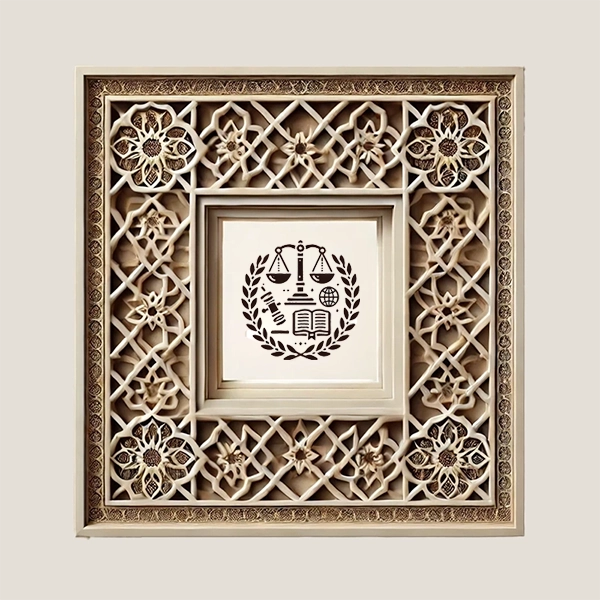12. We Advocate for a Civilized Dialogue Based on Fair Competition
In the future civilization, many moral, social, and even political values will be replaced by alternative ones that express the will of the sole victor, his ideas, and his vision for solutions. Yet, the victor always seeks to eliminate obstacles, diversity, and complexities in human societies in order to simplify matters and make governance easier and control more efficient. For this, nationalistic fanaticism must be dismantled — either by force, as in old colonialism, or through the power of money, media, and deception, as in modern colonialism, or through the power of logic and reason.
Moreover, many traditional borders, frontiers, and distances will be replaced by electronic and legal standards that are stricter, more serious, and more influential. It is likely that all religions and beliefs will gradually fade over time, except for the beliefs of the victor. What will remain of religions will be mere names, folklore, arts, and oral and popular history…
Today, however, we are in a transitional phase, whether we like it or not. The task ahead is to move from this phase to the next one with humane smoothness and fluidity, through calm dialogue, legalizing the changes, understanding the rules of transition, comprehending the new reality, and accepting the inevitable with a spirit of logic and reason. But when force — whether through money, media, or deceit — is used, one cannot remain silent, especially if the other side uses its technologies to disable human intellect and strip it of its ability to think.
From this perspective, the conflict today is not between the heavenly religions themselves. The true conflict is between those who believe in the randomness and absurdity of the universe, prioritizing material, instinctive, and tangible matters, indulging in entertainment and mental sedation, instead of focusing on essential, intellectual, rational, and ideal concerns. From this standpoint, all divine religions have a single goal: the elevation, perfection, and refinement of humanity, and its connection with the higher, more precious, and more complete existence in creation… This, in itself, is the greatest platform for meeting and dialogue.
Anyone who expects interfaith dialogue to lead to the transformation of religions into irreligion will not achieve the desired fruit nor reach the goal. In fact, such a mindset risks producing the opposite — extremism, as a reaction. Therefore, the purpose of dialogue must be to organize the rules of religious engagement, nothing more. Even proselytization and missionary work, or attracting the audience of another faith, are inevitable; yet all religious practices, including preaching, must adhere to civilized and humanitarian standards. And when all else fails, there is “cauterization as the last remedy.” Thus, dialogue must be held between the thinkers and wise leaders of both sides.
In reality, dialogue between Muslims and Christians is, on the surface, a dialogue with the “other,” but in depth, it is a dialogue with the self. The real issue is not with followers of other faiths, but with secularists and those who deny God.
As for dialogue with the peer “other,” its foundation must be accepting the other as other within one society, accepting him as a competitor striving for perfection, accepting him as he is, and understanding him as he should be understood. A fair competitor is better than a foolish friend who is but a tool for outsiders. Interfaith dialogue does not require abandoning one’s beliefs, thoughts, or ideologies — especially concerning the relationship between man and the absolute, perfect existence — because any overstepping in this regard leads to backlash and then extremism. We cannot fool the other, nor can we fool ourselves, for every religion has its own guardians, believers, and defenders. Anyone who falls into the net of another faith, surpassing his own religious standards, becomes part of the other faith, whether we like it or not, and the dialogue with him becomes an internal dialogue rather than a dialogue with “the other,” thus losing its meaning.
This is evident in Christian-Jewish dialogue, where immersion in the Old Testament at the expense of the New Testament has created an ideal opportunity for one faith to dominate the other politically and intellectually. Yet this situation is unnatural and will collapse. The longer the backlash is delayed, the harsher the collapse will be, as we saw in the reaction of Europeans, particularly the Germans, toward Jews during World War II. Today, for example, these hidden reactions manifest in Europe’s discreet, almost imperceptible support for the Islamic Republic of Iran during crucial moments over the past forty years — contrary to the criticism, attacks, and provocations we hear in the media.
Therefore, we want dialogue to be constructive and fruitful, not mere lip service. For that, interfaith dialogue must focus on organizing rules of engagement, not on organizing rules of hypocrisy or deceit toward the other, especially under the dominance of capitalism over all divine religions. The evidence for this is that all global unifying figures, after a short time, unfortunately become nothing more than symbolic, vocal, and friendly images with no real influence on the practical or political stage.
In our ever-changing and evolving world — with its challenges of modernity, globalization, cultural and technological exchanges on one hand, and the rise of irreligious and nihilistic tendencies on the other — it is natural and logical that all divine religions, including Christianity, hold firmly to religious values today to resist dissolution and dilution, for we are all threatened.
We must avoid inserting political goals into interfaith dialogue, because the deepening misunderstandings between Eastern societies and advanced Western countries only add “fuel to the fire” of religion.
Prayer and Supplication: The Sole Key to Constructive Dialogue
To truly understand the other as they wish to be understood, while not abandoning each religion’s core beliefs as the basis for fruitful dialogue, we must also recognize that the most important common ground between all divine religions is the dominance of atheistic and nihilistic forces over global politics and economy. All shared legal and theological points between religions are meaningless if they are not endorsed by all sects within each religion. Likewise, exceptional theological interpretations cannot be relied upon as common ground, because whoever changes their beliefs due to the influence of others becomes one of them — and dialogue with them ceases to be dialogue with “the other.”
Since the ultimate goal of all divine religions is perfection and attaining the absolute ideal, supplication, prayer, humility, and inner communion with that ultimate perfection are the best starting point for a truly humane and civilized dialogue, especially in this transitional stage. In this context, I have chosen a prayer book that could serve as a foundational medium for human communion with that sacred being.
It is worth mentioning the book “Al-Sahifa Al-Sajjadiya” (The Psalms of Islam), which opened new horizons of spiritual consciousness during an era dominated by catastrophic events and political turmoil. It offered solutions through prayer, devotion, spiritual purity, and the distancing from evil tendencies, by connecting with God — the source of goodness and love.
This is highlighted by Dr. Michel Kadi in his book “Imam Zain al-Abidin (AS) and Christian Thought”, where he states:
“The Sahifa Al-Sajjadiya contains hundreds of spiritual offerings that carry within them unifying dimensions, calling for ethics and love of God.”
Its significance is not limited to the Islamic world but extends to other divine religions because of its spiritual qualities that connect humanity to the divine. Dr. Michel Kadi notes:
“If we carefully read the prayers and supplications of Imam Zain al-Abidin, we can feel in his prayer the sacrifice of the pious and the ascension of the believer, which Christ himself advises.”
Western scholars have also begun paying attention to this spiritual trend, as Dr. Reynold Nicholson mentions in his book “Islamic Mysticism and Its History”, particularly by focusing on what is known as Islamic Sufism. Due to the importance of Al-Sahifa Al-Sajjadiya, Orientalist scholars have referred to it with titles that highlight its proximity to the theological worship of the church. Imam Zain al-Abidin, in their view, resembles the saints of the church — among the most devout and obedient servants of God.
This is clearly stated by the orientalist Henry Corbin, who writes:
“He — Al-Sajjad — is the author of a well-known book called ‘The Psalms and Gospels of the Prophet’s Family,’ a text that has been subject to extensive commentary by many Shia scholars, and to this day remains a common book of devotion among all pious men of religion.”


